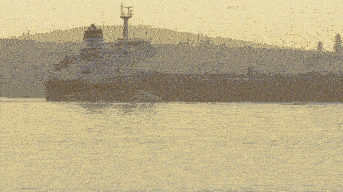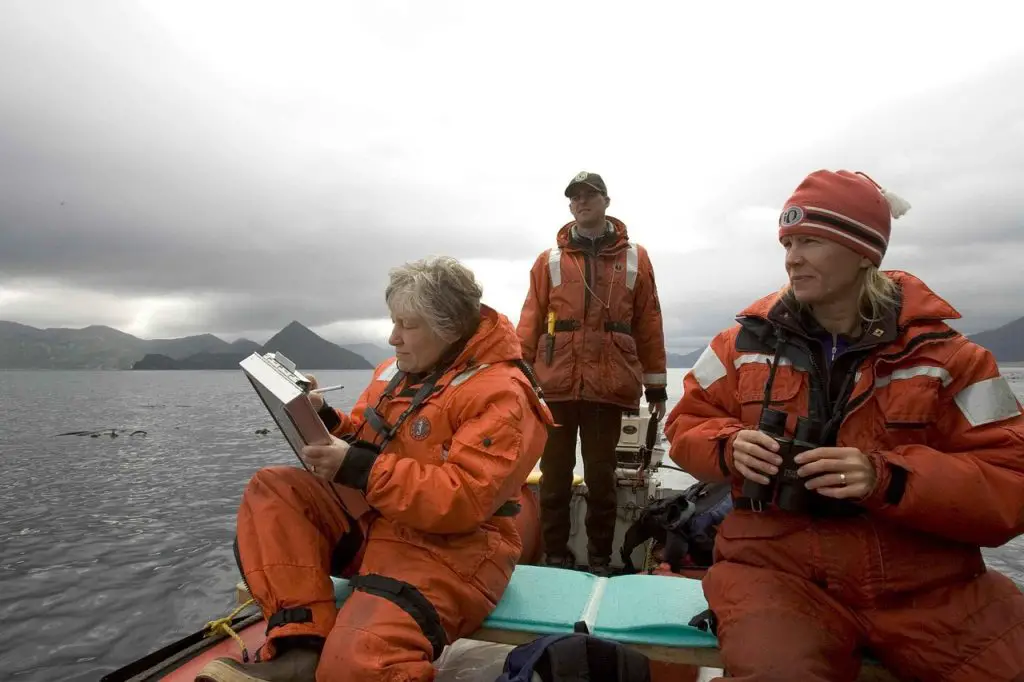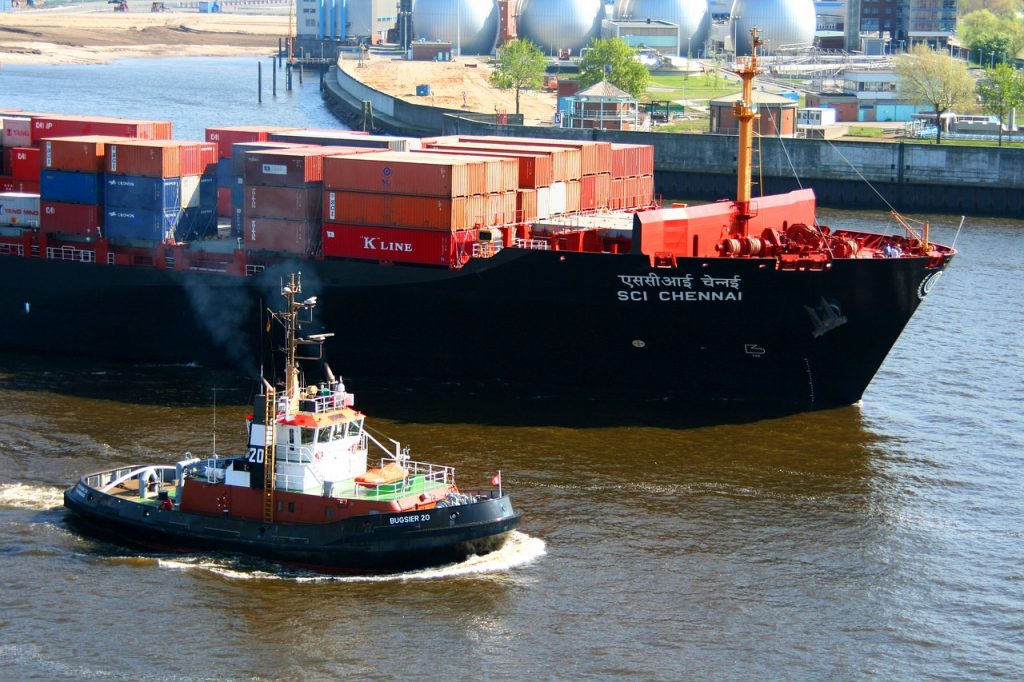Last Updated on June 4, 2020 by Amit Abhishek
The difference between the boat and the ship or simply “Boat vs Ship” is one of the fascinating questions of all times. A lot many people are confused about what they really mean (‘Boat’ and ‘Ship’). Both being a sea-going vessel, it’s hard sometimes to know whether its a boat or a ship?
Traditionally people use to differentiate ships from boats based on their size. But with time it became hard to answer just by looking at its size as there are always some exceptions.
Think of large commercial fishing vessels which are still considered as boat irrespective of their large size. They might have a separate engine room too but still called a fishing boat.
Yes, it will be a larger boat but that would still be a boat.
One can easily laugh at you for describing a boat as a ship or vice versa. But still, everyone seems confused when they are asked to describe Why?
That is just why to describe boat vs ship or their key difference; you will hear simple logic like; a vessel small enough to be carried on large water vessel is a boat.
While a water vessel that is sufficiently big to hold several of such boats on its deck is called a ship. It may be kind of right by nor a 100% perfect answer. So to better understand the difference; we will break it into a number of deciding factors required to be taken into consideration.
Boat Vs Ship | 8 Difference That Makes Them Unique
1 ) Definition for Boat vs Ship
Not just they differ in the way they are conveyed or refereed to but also what they represent. Both boats and ship represents different things when used in general English.
So what’s better be to differentiate boats from ships by using their basic definition given in books and understood by many.
Boat: it is defined as a vessel capable of floating on water such as river, ocean, sea, pounds and are of less than 500 tonnage. Generally, they carry small amount of goods and passengers from one place to another over a small distance. They are commonly related to entertainment, goods, and fishing.
Ship: They are defined as large complex vessels capable of sailing across the oceans and are of more than 500 tonnage. They generally work in deep waters powered by large marine engines. They are simply large, robust and strong vessels that carry large goods, perform war efforts, carry people and transport raw materials.
2 ) Difference in Size
Traditionally men differ boat from ship based on their size. Thanks to the phrases such as “You can carry boats on ship but not a ship on boats”.
Small vessels are generally considered as boats while the bigger ones as ship. But technically any vessel more than 500 tonnage with sufficient crew and cargo capacity is a ship irrespective of its size.
For example, the records for the worlds smallest ships goes to “Skorpios“; which is a typical cruise ship of just 1200 GRT operated by company “Cruceros Skorpios“.
This ship was just 70 meters in length and 10 meters wide and looks just like big fishing boats from a distance.
If it wasn’t be its 1200 GRT weight including with the crew capacity of 108 it would have been called a large boat.

3 ) Various Types of Boat Vs Ship
There are various types of vessels around for transportation on waters. One can be an aircraft carrier, battleship, cruiser, cruise, drekar, ocean liner, cargo, tanker; fishing, catamaran, Dingy, yacht, banana, lifeboats and many more depending upon their role, capacity, and comfort.
When looking for boat vs ship the least I expect from you to know; all the different types of boats. Knowing them helps well understand how they are different than a merchant, cruise or naval ship such as an aircraft carrier.
You might traditionally call them as what they are, such as cruise ship and lifeboat. But a boat and ship can be categorized in the following main types:-
Boat
- Hand Propelled boats
- Sailing Boats
- Motor Boats
- Fishing Boats (80%)
Ship
- Military
- Commercial
- Fishing (20%)
- Inland/Ocean Recreational Passenger vessels (Cruise Ships)
4 ) Area Of Operation
Generally, boats are what that is used in restricted waters close to shore and under low sea conditions. This means they can be used in places where ships can’t such as in sallow waters and thinner channels.
Vessels like Kayaks, Ferry, Tug, sailboats, pontoon fall in this category as they work just like the off-road on road bikes; switching there operation area from large lakes, rivers to shores.
On another hand, these mammoth ships operate in high seas and move across oceans to transport goods and people. They are also used for national security and maritime security; as used by different navy around the world. These vessels include Ro-Ro, Cruise, Container, Tanker, Aircraft Carrier, etc.
In the military, the ships are used for long-range targets while the patrol boats are used to protect and scan the maritime border.
Similarly in commercial shipping, large ships like tankers or containers ships are used for carrying large amounts of cargo across countries while boats are used to assist large ships or provide inland water transportation and supply.
5 ) Its Total Capacity
Boats are generally used for fishing and recreational purposes, and so require less cargo or machinery space than that of large ships which require large heavy machinery with large cargo capacity.
A boat generally uses small diesel engines that are driven mostly by motor-driven propellers.
On another hand, ships are needed to be equipped with large space for both cargo storage and engine room.
The engine room is where all the necessary machinery is located for the successful operation of the engine. The boats are made to carry various types of cargo in a very small amount while a ship can carry a large amount of the same cargo or people.
A boat while having a limited capacity but large variety of cargo options to store, ships simply prefer to have large cargo storage for just one or two types of cargo.
For example, a tanker can only store and transport crude oil or a dry cargo can always carry and store dry minerals or raw materials like; coal, iron ore, etc.
6 ) Design and Construction
There are many constructional difference in boat vs ship; A ship is a sophisticated piece of machinery which require large compartments, robust design, heavy machinery, and complex construction.
On the other hand, boats are simple, have smaller and less machinery and have simple but robust construction.
On boats, you can find quite variations from open head to closed structural ones and even with dedicated bullheads.
In contrast, a ship is divided into more than 3 sections with dedicated bullheads in between.
While designing a ship a person has to put attention to multiple factors including its stability, draft, structural stress, machinery space, cargo space, etc.
While a boat in construction is a simple construction and utilizes less space, cargo space requirement and size of the engine.
For boats, you can use old techniques of making hull and still came with the hull of sufficient strength and quality. While for ships you have to use the latest methods following all the guidelines issued from classification society, IMO and flag state.

7 ) Crew Size
There are more people on the ship then on the boat, so are the crew; Thanks to its large size. People often believe that a vessel with a large crew is a ship but a small one is a boat.
They are close to the truth but are not correct. As sometimes a mid-sized fishing boat may have a comparatively larger crew; while many ships operate with a crew of just 16-20 crew.
Ships have a hierarchy of crew on board with designated technical qualities such as captain, chief engineer, chief officer, trainee engineer etc.
They are the professionals employed on the ship with certain technical skill to perform a designated set of works. On the other hand a boat have one or two irregular / Unprofessional crew who has to look after all the aspects of the vessel.
On boats the size of crew can be from 1 to as many it can accommodate. In contrast a ship can never reduce its crew member within a certain limit.
It also have to ensure high quality of life at sea with adequate care of their well being and safety; which for many boats it’s just not possible or economically viable.
8 ) Propulsion Machinery
Boats are generally hand or motor propelled and are simple in design and easy to maintain in a long time.
While on ships it requires dedicated machinery ( 2/4 stroke marine diesel engine ) connected with the propeller to propel the ship. These engines too are not connected directly to the propeller but rather through a series of intermediate shafts.
This makes propulsion a bit costlier for ships by ensuring proper maintenance and crew to look after them.
On ships, you have to do maintenance and checks on engines as per fixed schedule. While on many boats engine is only opened or checked in case of some trouble or need for up-gradation.
On boats, the propulsion machine can be started and run mostly independently of any other system but on ships, you need a series of auxiliary machinery to prepare the engine just to start.
Similarly while on boats you won’t worry more than pushing a button to start, on ships you need to follow procedures before finally turning it on.
Also Read:
- What Are Different Boat Types? | A Guide On Types Of Boats
- Why Does A Ship Float At Sea But Sinks In River?
- Parts Of Ship Its Definition And Their Function
- Marine Terminology For Boat Ships & Sailors

